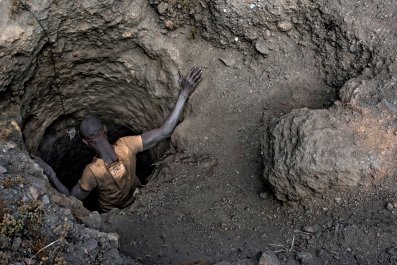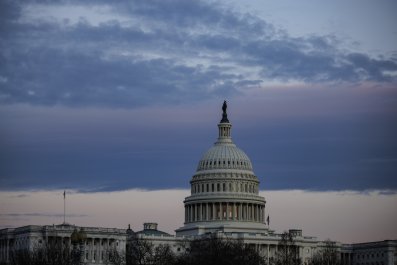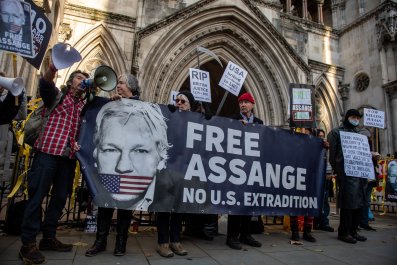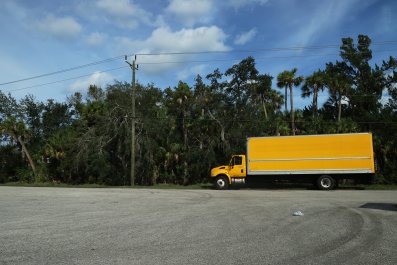Electric vehicles (EVs) are a major cornerstone of clean energy. The modern economy is dependent on smartphones. Every smartphone, EV and other rechargeable battery requires the scarce resource of cobalt, and about half of the world's cobalt reserves can be found in one 250-mile region of the Congo known as the Copper Belt. Yet, not enough attention is paid to the conditions of the workers who mine that cobalt. Siddharth Kara investigated their plight in his book, Cobalt Red: How the Blood of the Congo Powers Our Lives (St. Martin's Press, January), and in this interview he discusses with Newsweek his book, the geopolitical implications for Chinese domination of cobalt mining, what companies should do to address the conditions of the miners and much more.

Q _ Why this book? Why now?
A _ Almost every lithium-ion rechargeable battery in the world has cobalt in it, and almost three-fourths of that cobalt is mined in appalling conditions in the Congo. Never in human history has there been so much suffering that generated so much profit that directly touched the lives of more people around the world. Most people are unaware of this tragedy, and that is why I wrote Cobalt Red. The reader will hear directly from the Congolese people themselves how they live, work and die to enable our rechargeable lives.
You describe the deplorable conditions artisanal miners in the Congo are subjected to so that the industrialized world can have smartphones, electric vehicles (EVs) and more. What can be done to improve the lives and working conditions for those at the bottom of the supply chain?
Consumer-facing tech and EV companies must accept responsibility for the people who work at the bottom of their supply chains. It is a simple concept, but for some reason most of these companies choose instead to issue vacant PR statements about maintaining human rights standards while turning a blind eye to the exploitation of the people who scrounge for their cobalt.
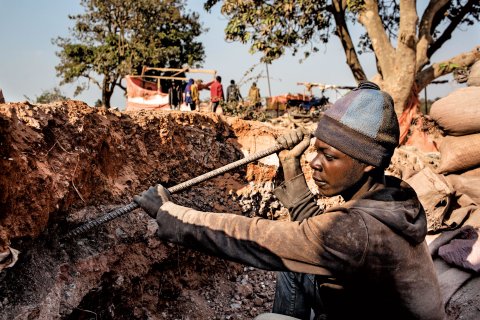
EVs are hailed as the future of transportation, to protect the world from carbon emissions. Yet the quantity of cobalt required for EV batteries is a significant issue. Is the human cost of mining cobalt worth the benefits? And is there enough cobalt in the Congo or elsewhere?
We should not tolerate a green future that is achieved through acts of violence against the people and environment of the Congo. EV manufacturers know the clock is ticking on cobalt reserves, as demand will far outstrip supply in the coming decades. Alternative battery chemistries are being developed, but this does not exonerate any of these companies from the harm caused by cobalt mining to this point, and for years to come.
A key Chinese priority has been to acquire cobalt mines and to dominate the market for processing it. What are the implications of that for workers in the Congo? The geopolitical implications?
China cornered the global cobalt supply chain before anyone realized what was happening. They dominate copper-cobalt mining in the DRC, they dominate EV battery metal refining and they dominate rechargeable battery manufacturing. The U.S. is trying to play catch-up, but there are no U.S. companies operating in the DRC, and there is not as of yet enough known alternate sources of cobalt to wrest control of the chain from China.
Does your book strengthen the case for more exploration and development in North America? Does it also strengthen the case for the recycling of cobalt? Or would this sever an economic lifeline for the people of Congo?
The world is scrambling to find alternate cobalt deposits, including those under the ocean floor, but it will take years of development to bring these resources to market. Current recycling technologies must still be improved to maintain the high-grade output that is needed for EV batteries. These initiatives will help meet future demand.
In the Inflation Reduction Act, Congress set conditions requiring that a minimum percentage of minerals and components for electric vehicle batteries need to come from the U.S. and its allies. Do you agree with that policy?
It is certainly important to try to diversify the supply chain, but such policy does little to reduce the harms being suffered every day in the Congo.
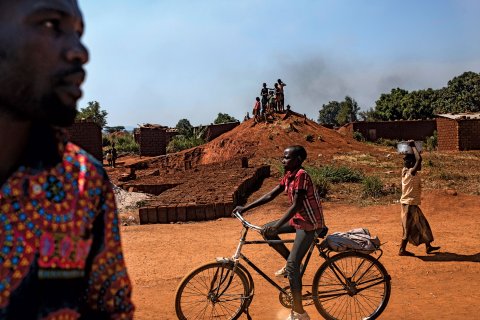
What should companies do to positively impact the abuses you describe in your book? Are there things the average person can do?
Companies should just do the things they say they are doing. Establish mechanisms to reliably inspect and audit their supply chains, all the way to the artisanal mining level. Enforce human rights and sustainability principles vigorously and consistently. Treat the artisanal miners of the Congo the same way they treat employees in corporate headquarters. Invest in local communities to return some of their immense profits to the people who make those profits possible. At this stage, there is not much that individuals can do to ensure tech and EV companies enact these policies, other than to continue spreading awareness and agitating for change.
What was the most surprising thing you learned when researching this book?
I was startled by the extent to which the realities on the ground in the Congo ran completely antithetical to the stories being told at the top of the chain. I expected the narratives promulgated by tech and EV companies were sanitizing the truth to some degree, but the ground reality was a horror diametrically opposed to the picture painted by stakeholders outside of the Congo. It was like I had stepped into an alternate universe, one in which the moral clock had been dialed back centuries to a time when the basis of exchange with the people of Africa was motivated solely by violence, piracy and utter contempt for their humanity.




